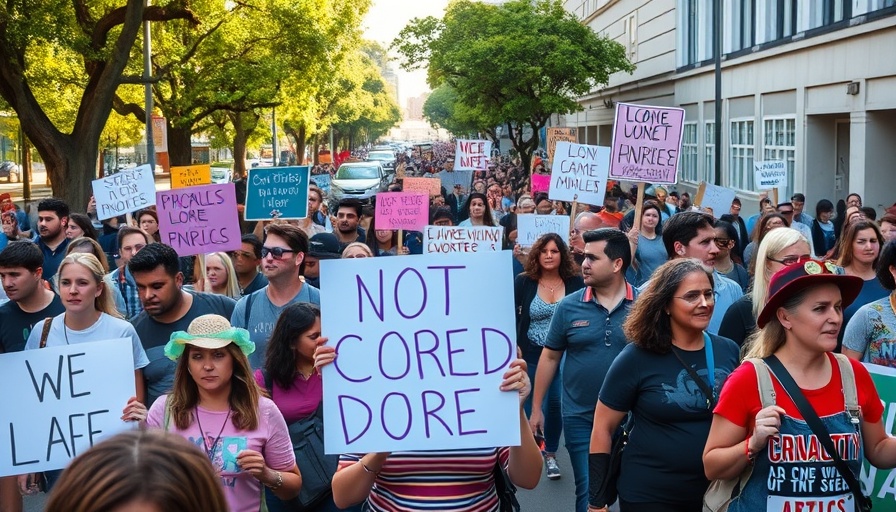
Thousands Unite Against Inequality at 'No Kings' Protest in San Francisco
On June 14, 2025, San Francisco witnessed a powerful demonstration called the 'No Kings' protest. Marching from Dolores Park to City Hall, thousands gathered to voice their frustrations with economic inequality, political corruption, and the influence of corporations and billionaires in government. The event showcased a diverse coalition of citizens who demanded that their voices be heard, addressing key concerns about the direction of the city under recent local leadership.
Historical Context and Background: The Rise of Protest Culture in San Francisco
San Francisco has a rich history of activism, from the Summer of Love in the 1960s to the fight for LGBTQ+ rights in the 1980s. This backdrop of passionate protests has evolved into a modern culture of collective action. The 'No Kings' protest draws upon this legacy, aiming to revitalize a sense of community engagement to counter current trends of inequality and disenfranchisement experienced by lower-income residents.
Civic Engagement: Why This Movement Matters Now
The organizers of the protest highlighted the importance of civic engagement, emphasizing that municipal policies must reflect the needs of all residents, especially workers and immigrants who are essential for the city’s functioning. With speakers from various labor groups, the protest served as a platform to unite diverse voices against the backdrop of a political environment often perceived as favoring wealthy interests over community welfare. Natalie Gee, a representative from IFPTE Local 21, passionately reminded the crowd that it is the workers who keep the city alive, not the elite."
Counterarguments and Diverse Perspectives: The Discourse of Democracy
While many celebrated the 'No Kings' movement, opponents argue that the protests highlight a discord that threatens local governance. Critics contend that such demonstrations can disrupt the public agenda and create divides. However, proponents believe that without these expressions of dissent, the voices of marginalized communities risk being altogether silenced in policy discussions, further entrenching the status quo.
Relevance to Current Events: A Snapshot of San Francisco's Political Climate
This protest coincided with heightened scrutiny of political decisions in San Francisco, as residents grapple with new laws affecting housing, public safety, and transportation. The 'No Kings' protest was not just about voicing discontent; it was an opportunity to engage local leaders in meaningful dialogue about future city initiatives. Evaluating the implications of these reforms is crucial for understanding the potential for positive change within the community.
Community Solidarity and the Spirit of Protest
Images from the protest — families gathering, musicians playing in the streets, and even dogs participating — underscored the theme of unity. This spirit exemplified why public demonstrations remain a cornerstone for advocating change. The vibrancy of the protest, highlighted by participants waving upside-down American flags, symbolized a collective call for action against perceived injustices.
Arrests that occurred later exemplified the tension inherent in protests. While the majority of participants maintained a peaceful demonstration, a splinter group's actions led to an intense escalation, showcasing the complexities that often accompany organized movements.
What Can You Do? Join the Dialogue on Local Issues
The 'No Kings' protest serves as a reminder that every individual has a stake in their community's fate. Engaging in local discussions and voicing concerns to community leaders can help ensure that diverse views are represented in future city council decisions. Staying informed about local politics and participating in civic engagement are vital steps to fostering a more equitable society.
In this moment, the San Francisco community is at a crucial crossroads. The demands made during the 'No Kings' protest illustrate a populace eager for change and a government that listens. As the city's political landscape continues to evolve, collective advocacy remains a powerful tool for shaping a better future for all.
 Add Row
Add Row  Add
Add 




 Add Row
Add Row  Add
Add 

Write A Comment